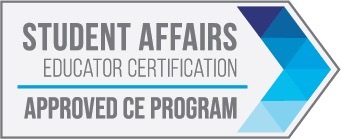
Student Learning and Development 2024 Virtual Conference Package
-
You must log in to register
- Non-member - $349
- Member - $149
NASPA presents a bundle of discounted webinars centered on Student Learning and Development, curated to empower student affairs professionals in creating impactful educational experiences. These sessions highlight best practices and innovative frameworks to support students' academic, social, and personal growth. Learn from thought leaders as they discuss topics such as effective learning environments, skill-building, and strategies to foster inclusive student engagement. With a focus on practical application, this bundle equips professionals with tools to enhance learning outcomes and contribute meaningfully to the student success ecosystem. Perfect for professionals dedicated to advancing their institutions’ missions and enriching students' lives.
Session Bundle Pricing:
Member: $149 ($1,106 value)
Nonmember: $349 ($2,506 value)
-
Contains 3 Component(s)
While extroverts are known as being outgoing, assertive, and often considered likable and good leaders, introverts are often known as quiet or anti-social. However, introverts are also active listeners, creative, and adept at relating to others. The presenter will share a deeper understanding of introversion using Jungâs personality theory, describe the types of introverts, explore misconceptions and strengths, and discuss strategies to support and empower introverted students and colleagues.
While extroverts are known as being outgoing, assertive, and often considered likable and good leaders, introverts are often known as quiet or anti-social. However, introverts are also active listeners, creative, and adept at relating to others. The presenter will share a deeper understanding of introversion using Jung’s personality theory, describe the types of introverts, explore misconceptions and strengths, and discuss strategies to support and empower introverted students and colleagues.
Learning Outcomes:
- Understand introversion more deeply, including recognizing common misconceptions and strengths.
- Identify strategies to support, collaborate with, and empower introverted students and colleagues.
Rayna Tagalicod
Director of National Student Exchange & Assistant Faculty Specialist
University of Hawaii at Manoa
Continuing Education Credits
This session offers: 1.0 CSAEd-CORE credit or 1.0 CSAEd-SJI credit
To receive CSAEd credit, attendees must complete the feedback survey that offers the certification in each session.
Once you have attended all the live sessions or watched the on-demand sessions for which you would like to request credit, visit the Continuing Education (CE) website to fill out the Student
Affairs Education Certification Request Form for all the sessions.
All certificants must fill out one for the live session and a separate one for the on-demand sessions.
Visit the Continued Education (CE) website to learn more regarding deadlines and receive your certificate of completion for the Virtual Conference.
